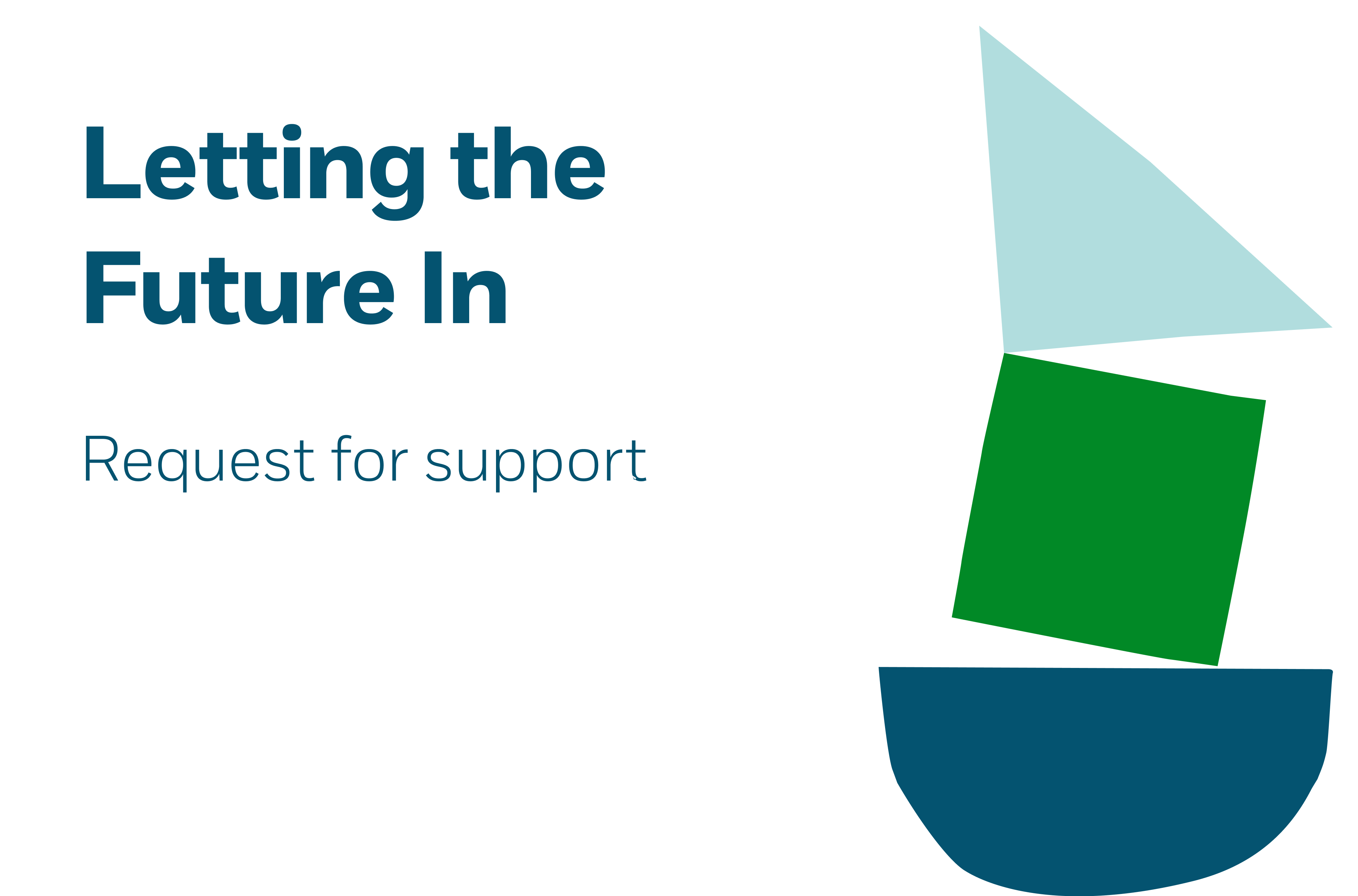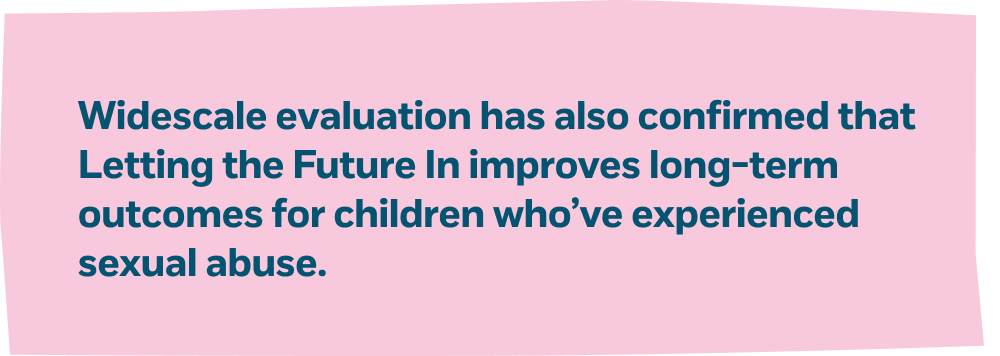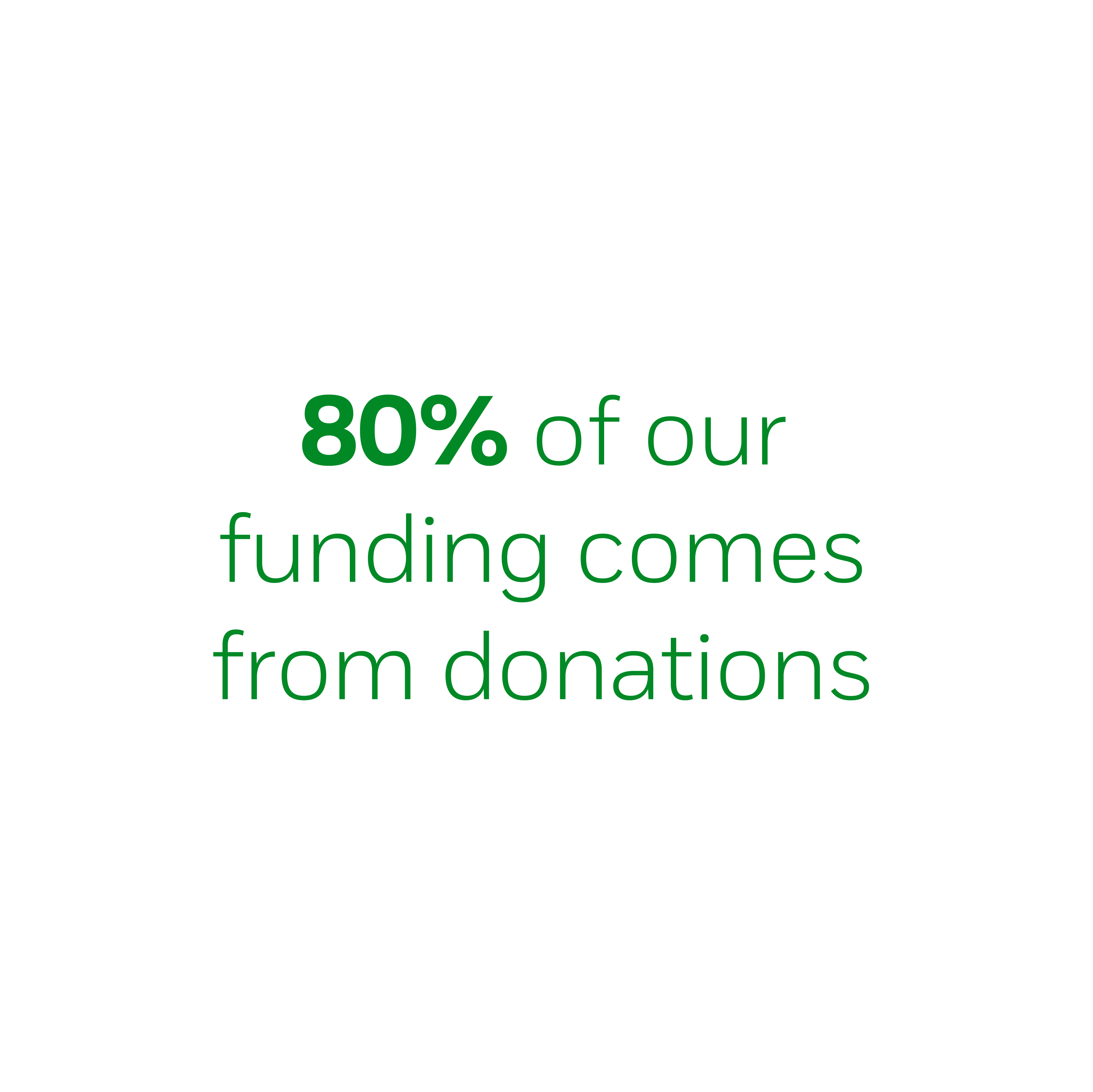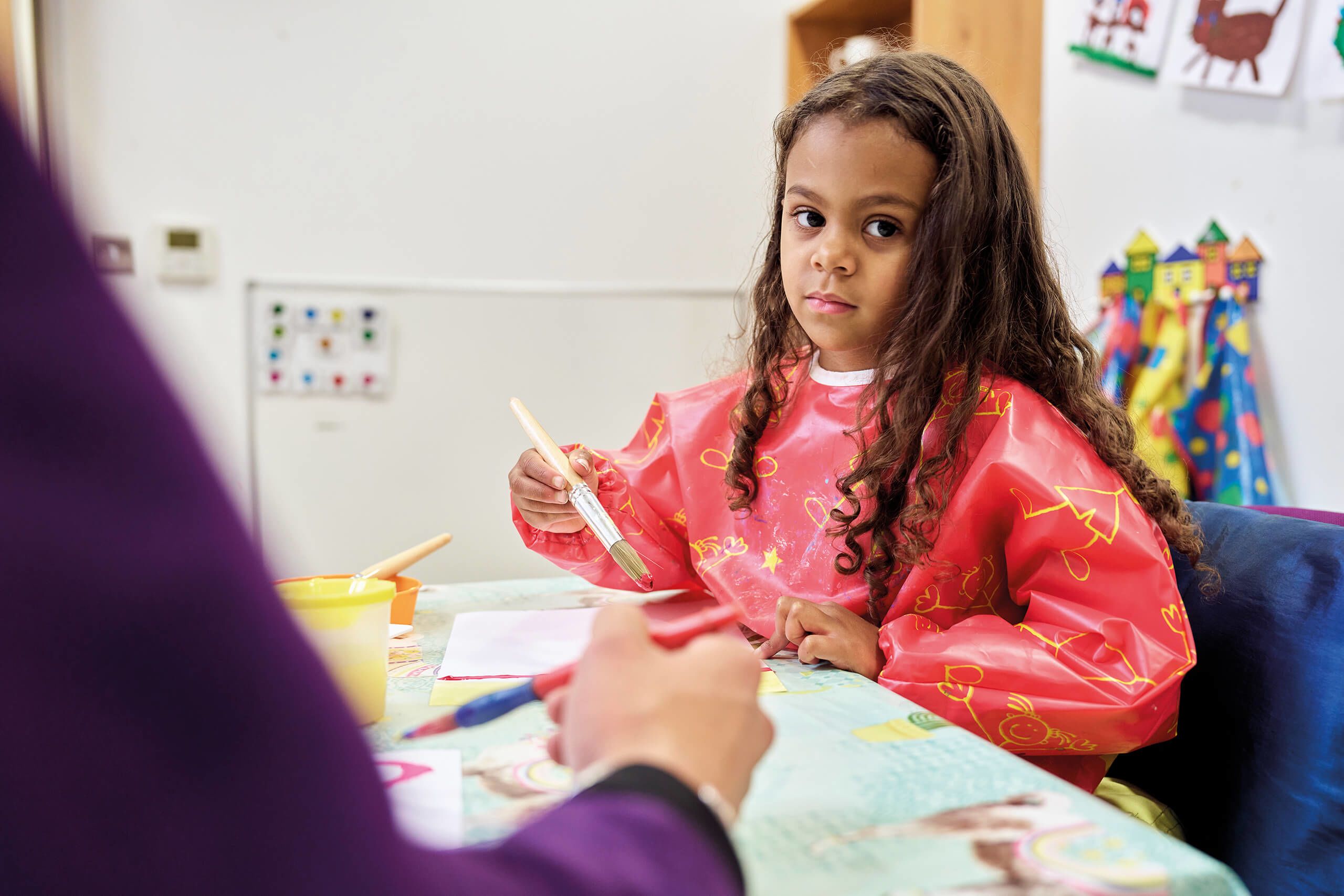
Letting the Future In (LTFI) supports children after sexual abuse.
When a child is courageous enough to reveal sexual abuse to a safe adult, it may lead to prosecution of the perpetrator, safeguarding interventions to protect the child and medical treatment if needed.
However, if children are to rebuild their lives and enjoy the childhood they deserve, psychological support for their trauma is equally crucial.
LTFI is our evidence-based, therapeutic programme that has been proven to help 4–17-year-olds begin to recover from the effects of their abuse.
Together with our generous supporters, we are developing and scaling up this service to reach as many children as we possibly can across the UK.


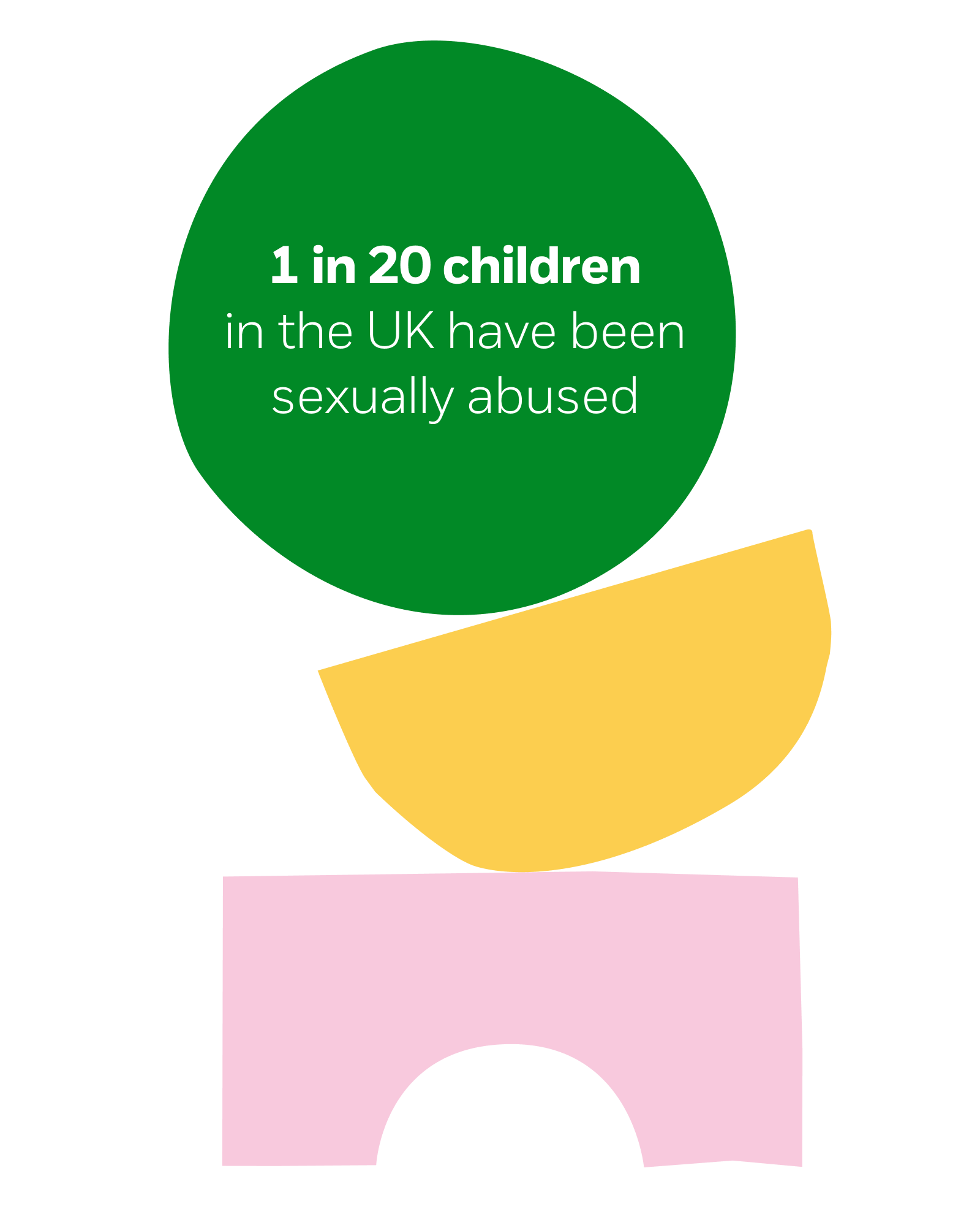
Letting the Future In (LTFI) supports children after sexual abuse.
When a child is courageous enough to reveal sexual abuse to a safe adult, it may lead to prosecution of the perpetrator, safeguarding interventions to protect the child and medical treatment if needed.
However, if children are to rebuild their lives and enjoy the childhood they deserve, psychological support for their trauma is equally crucial.
LTFI is our evidence-based, therapeutic programme that has been proven to help 4–17-year-olds begin to recover from the effects of their abuse.
Together with our generous supporters, we are developing and scaling up this service to reach as many children as we possibly can across the UK.
The horror of child sexual abuse
Child sexual abuse is when a child is forced or persuaded to take part in sexual activities in person or online. This may involve physical touch, making a child do something or having them watch. Being coerced, tricked or manipulated into sexual activities is a deeply distressing experience for any child.
One in 20 children in the UK have been sexually abused. It is the type of abuse most commonly discussed with Childline in recent years. Yet sexual abuse continues to be consistently underreported.
As a society, we understand that reporting criminals to the police is how we can bring them to justice. But what about their victims – the children who are left to carry the burden of sexual abuse?
The struggle for support
A postcode lottery and overstretched services often mean that children and young people do not receive any support at all until they start self-harming or become suicidal. Only at crisis point will statutory services such as NHS Child and Adolescent Mental Health Services (CAMHS) become available.
In the meantime, children can wait up to two and a half years for therapeutic treatment.
The sexual abuse they’ve experienced means they’ll struggle with feelings they don’t understand and pain they can’t put into words. They may develop anxiety and depression, eating disorders, addictions, post-traumatic stress, flashbacks or feelings of shame, guilt and isolation. On top of physical injuries, sexually transmitted infections or even pregnancy.
Every child deserves to heal and enjoy a childhood free from abuse.
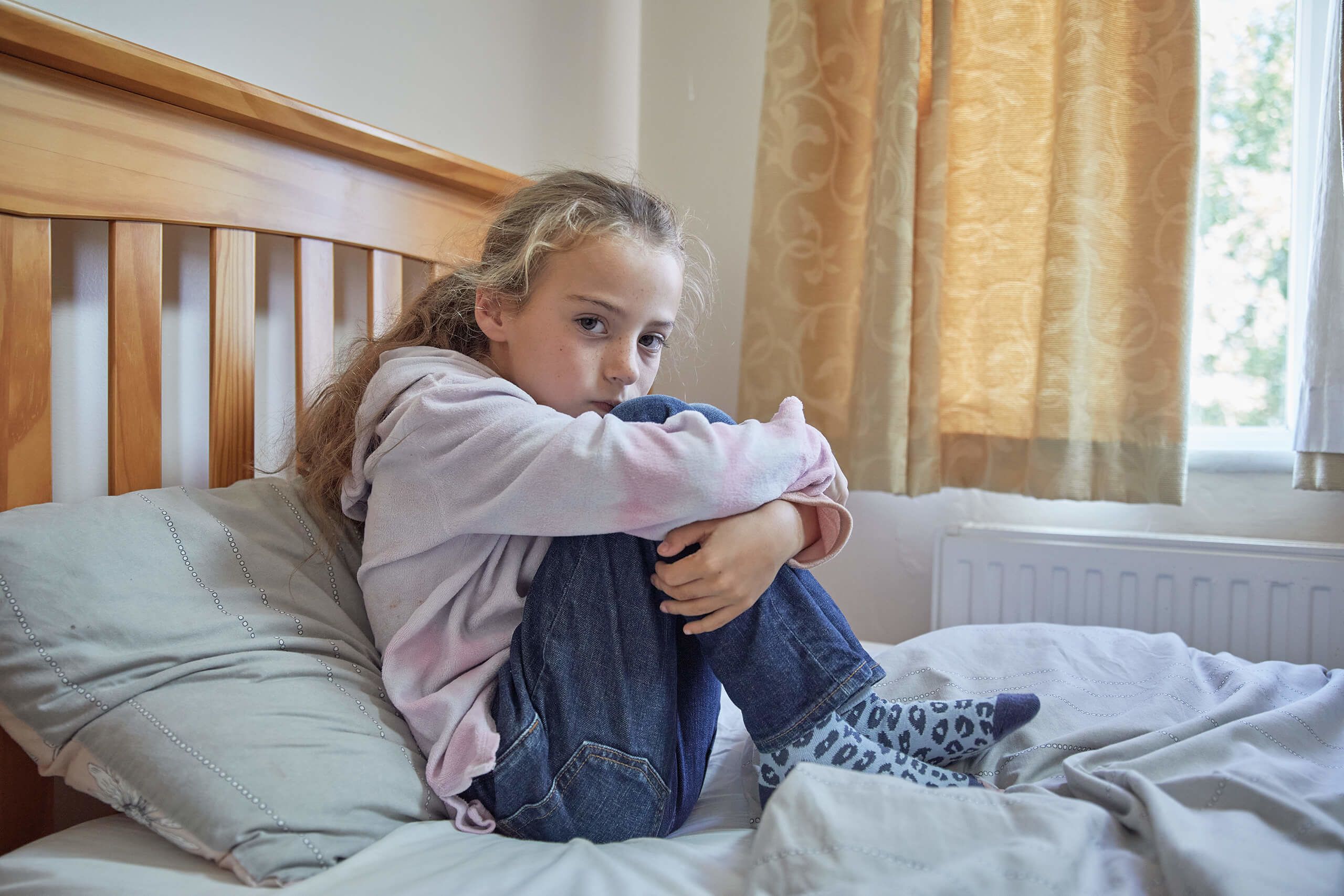
Making recovery possible
Letting the Future In supports children who’ve experienced sexual abuse and helps them start to rebuild their lives.
Our practitioners work closely with children and their families, listening to their needs and building a trusting therapeutic relationship. There are four stages to the treatment, which takes up to a year or longer if needed.
- An assessment to talk about how sexual abuse has affected the child. This stage has been co-developed with children and their carers to understand the right development and therapeutic needs for each individual.
- A bespoke programme of one-to-one sessions. We use a range of trauma-informed approaches, including talking, playing and creative activities such as painting, drawing and storytelling to help young people express themselves.
- Sessions with carers help them support their child’s recovery and manage the impact of the sexual abuse on the whole family.
- Joint meetings with children and their families to strengthen relationships and support one another, equip everyone to start moving on from the impacts of abuse, and help children feel safe.
By the end of our time together, our aim is that children will be more aware of their emotions, able to express difficult feelings and manage them better. We’ll have helped them make sense of their past and present and worked to free them of the guilt and shame associated with their abuse. Children will feel empowered to find their voice, fulfil their potential and lead a happy and healthy life.
We want to give children their futures back.
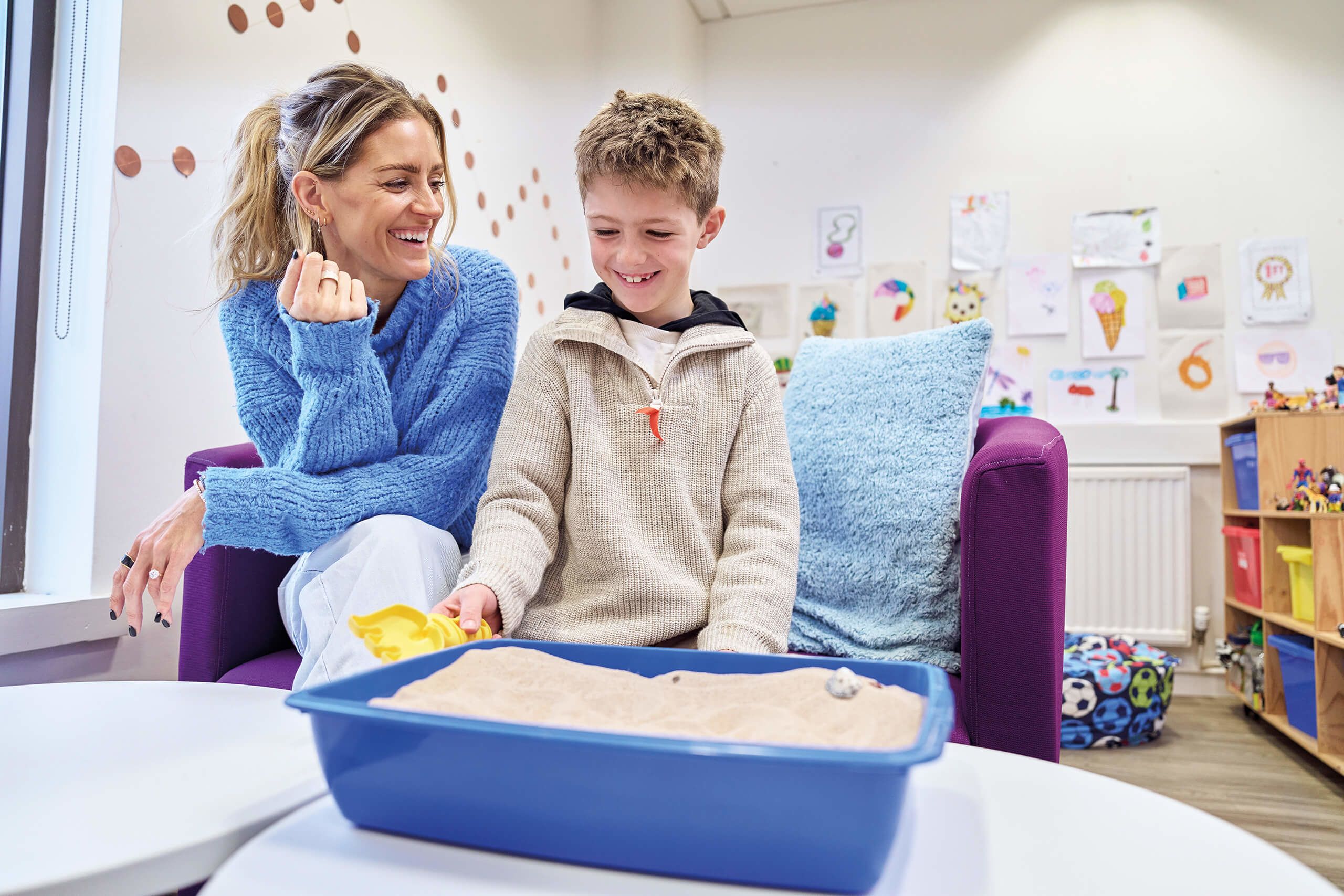
Accessible for all
We continually review and revise our services to make sure we meet the needs of everyone who comes to us for support.
Learning disabilities
For example, we know that children with moderate to severe learning disabilities are around six times more likely to be sexually abused. Together with children, parents and experts, we’ve developed a specific version of Letting the Future In for them. It focuses more closely on creative therapies and less on cognitive behaviour therapy, and our approach has been recognised to meet the needs of children with learning disabilities by the Centre of Expertise on Child Sexual Abuse.
Language and literacy
When children or their families don’t speak English, we’ll find a practitioner who speaks a common language or use a translator. And if adults have low literacy levels, we won’t send them long forms to fill in. Our practitioners will support them with the paperwork to help make sure everyone has the opportunity to participate fully in the programme.
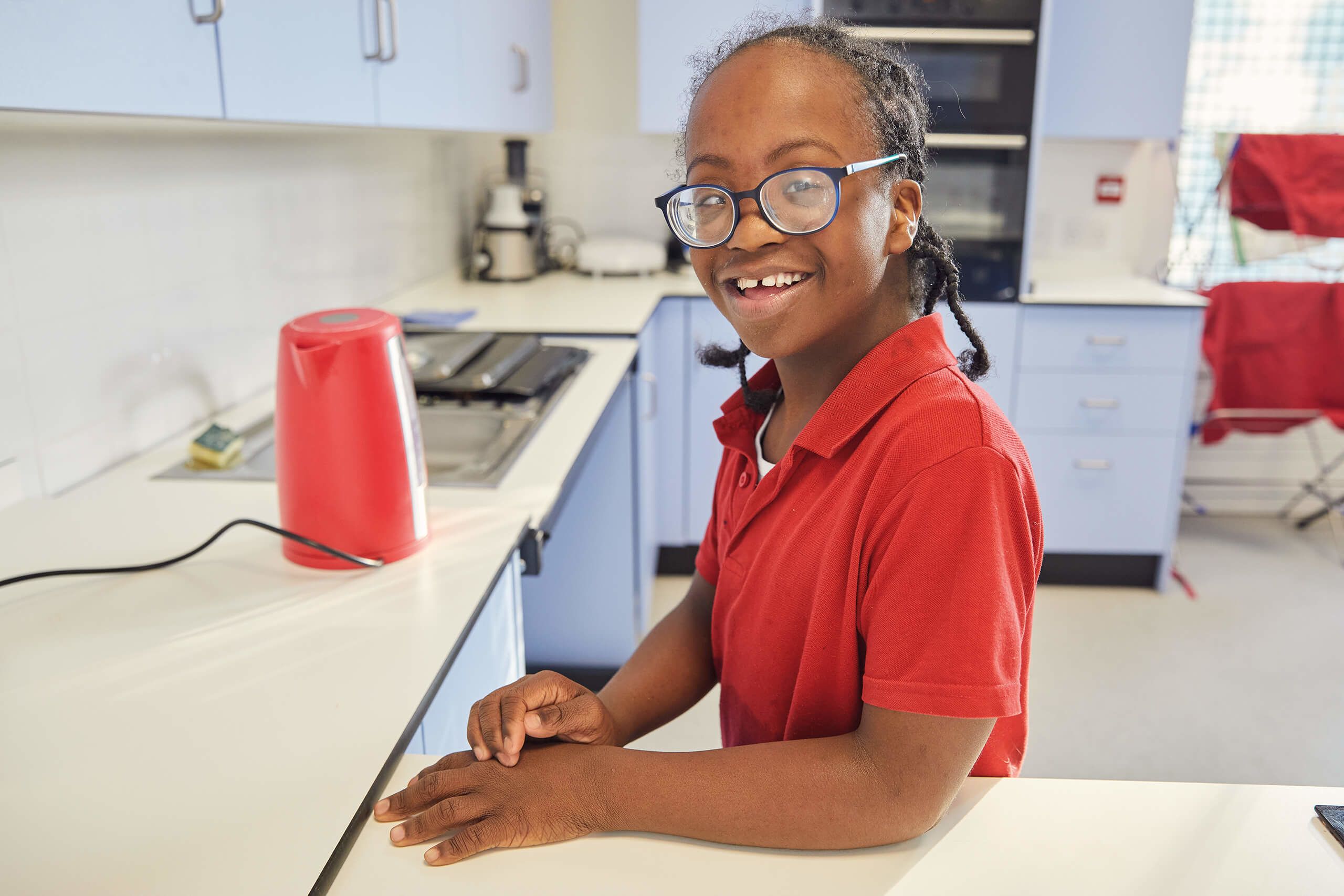
Evaluating the service
Letting the Future In is at the forefront of child sexual abuse recovery services in the UK. The programme has been recommended by the National Institute for Health and Care Excellence and endorsed by the Home Office.
In the largest randomised control trial for a child sexual abuse recovery service ever conducted internationally, we confirmed significant reductions in severe trauma and emotional difficulties among children.
- Within six months, 8–17-year-olds significantly improved psychologically and behaviourally.
- After 12 months, children under eight also started to see improvements in these areas.
The evaluation also confirmed that the service is around twice as cost-effective as CAMHS.
Due to the overwhelming success of Letting the Future In, we are now rolling out the service to partner organisations. We run training for practitioners, license others to run the programme and work closely to share best practice across agencies.

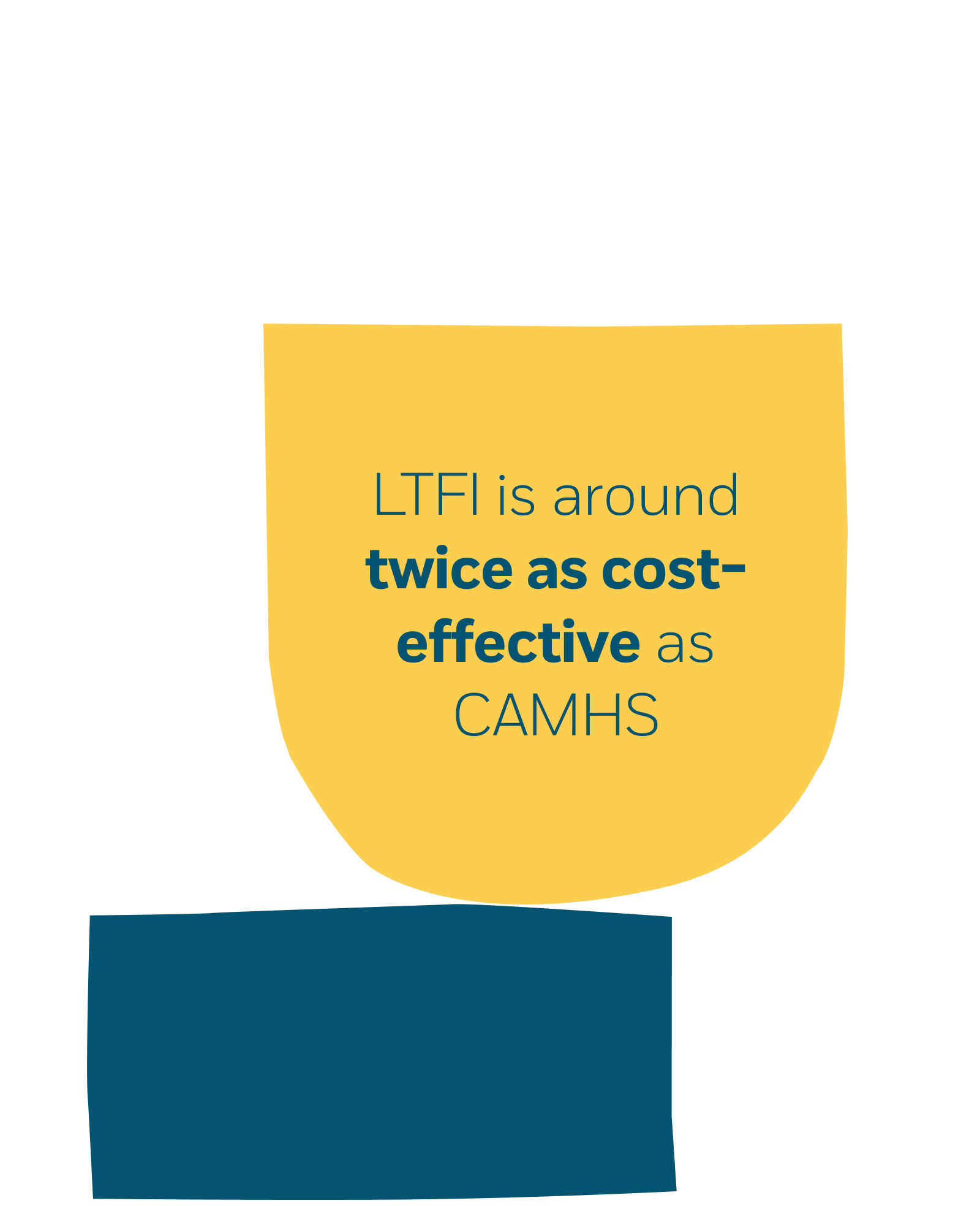
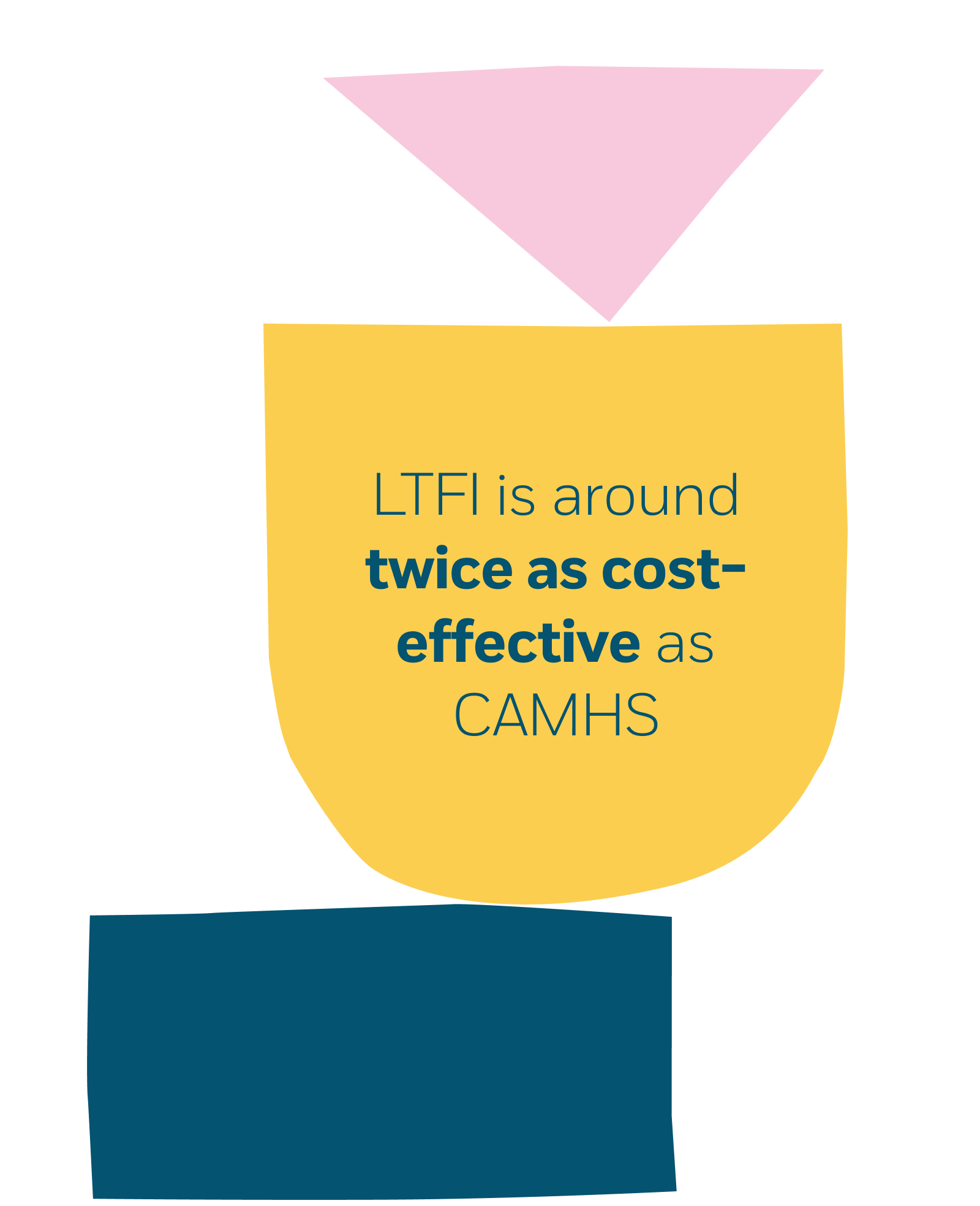
Evaluating the service
Letting the Future In is at the forefront of child sexual abuse recovery services in the UK. The programme has been recommended by the National Institute for Health and Care Excellence and endorsed by the Home Office.
In the largest randomised control trial for a child sexual abuse recovery service ever conducted internationally, we confirmed significant reductions in severe trauma and emotional difficulties among children.
- Within six months, 8–17-year-olds significantly improved psychologically and behaviourally.
- After 12 months, children under eight also started to see improvements in these areas.
The evaluation also confirmed that the service is around twice as cost-effective as CAMHS.
Due to the overwhelming success of Letting the Future In, we are now rolling out the service to partner organisations. We run training for practitioners, license others to run the programme and work closely to share best practice across agencies.
Tess’s story
Letting the Future In helped Tess* after she was sexually abused by her father when she was just 11.
“The whole experience changed me. I became a horrible person and I was always getting into trouble at school.
“I started coming into the NSPCC service centre when I was 12. My NSPCC practitioner, Jake, helped me with my anger. We talked about things that were going on in my life and worked on ways to calm down when I was angry.
“Speaking to Jake helped me so much. I’m in a better place now. Without him, I wouldn’t have a job, be in college or be able to stand on my own two feet. I’d probably be in prison.
“To other young people who’ve been abused, I’d tell them to get help and not keep it in because staying silent can ruin your life. I wanted to go on and make something of myself and not just be this child who was abused when they were younger.”
*Names and identifying features changed to protect identities.
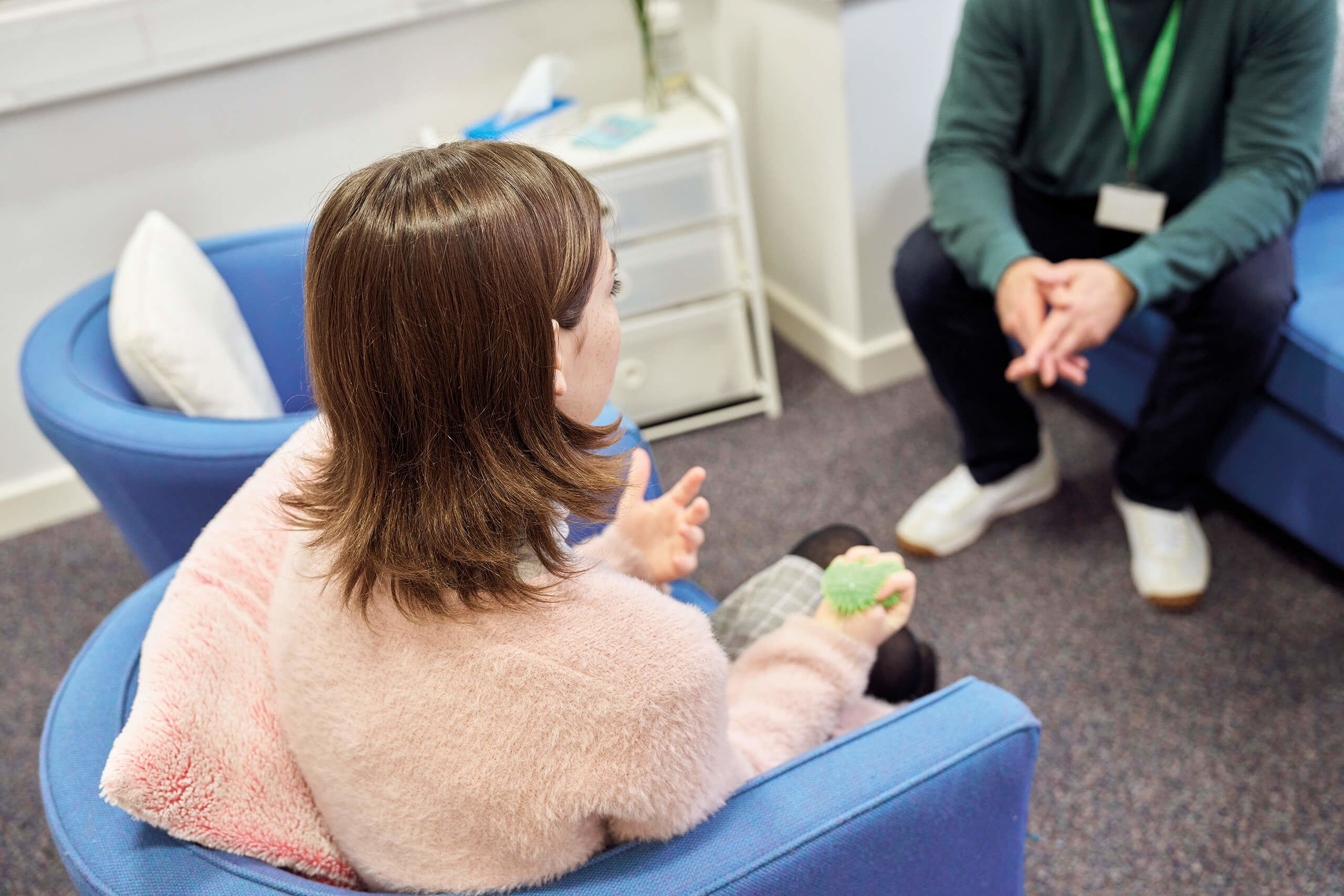
Will you help children recover after sexual abuse?
It is deeply worrying that thousands of children who’ve endured unimaginable abuse can’t access therapeutic services. Untreated, their trauma is likely to severely limit their opportunities later in life. The consequences of child sexual abuse cost the country a staggering £3.2 billion a year.
We’ve poured everything we’ve learned about supporting children who have experienced sexual abuse into Letting the Future In.
The service helps children begin to heal in as little as six months, while supporting the entire family. Now all we need to do is reach more children who need us.
Your support will help children get the therapeutic treatment they so desperately need and deserve.
Sexual abuse has cast a dark shadow over their childhoods. Together, we can lead children to a brighter future.
